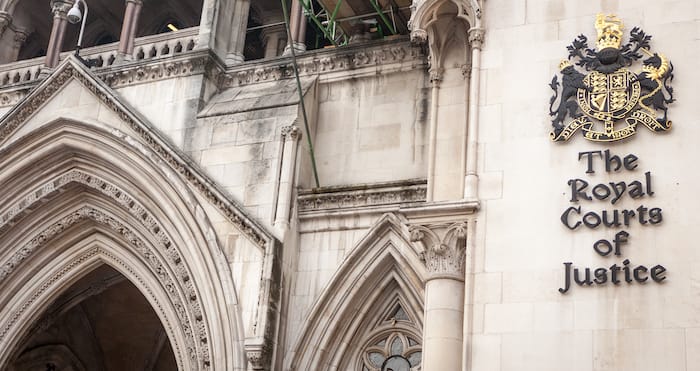Legal Cheek reviews the latest book offering by legal commentator Joshua Rozenberg

For some, the UK legal system consists of courts made up of an “unelected panel of out-of-touch judges” (the Daily Mail). In this world, Britons are engaged in a war which pits “the judges versus the people” (the Daily Telegraph).
Judges have overreached themselves, the argument goes, they have become too political; they use judicial review and human rights cases as weapons to thwart government policy and the democratic will. Critics cite a never-ending stream of court decisions covering issues such as whether or not prisoners should get the vote, over the deportation of immigrants or the so-called bedroom tax, which have ended with government “defeat”.
This battle was most graphically articulated in the wake of the High Court decision in November 2016 that Brexit could not be triggered without the UK parliament passing a law to enable the Prime Minister to do so. The next day the three High Court justices appeared on the front page of the Daily Mail under the infamous headline: “Enemies of the People” (referencing the label given to so-called traitors to the Communist regime by Stalin during his purges) for “frustrating the verdict of the British public”.
Joshua Rozenberg, the Captain America of legal commentators, has decided to tackle this debate head on in his new book, adopting the infamous Daily Mail headline. From its sub-title, How Judges Shape Society, I was not sure which way Rozenberg was going to argue this. In his preface, he explains that his book will examine: “How judges make law”, and says: “it can’t be denied that the judiciary has the power to shape society.” If that is the case, surely that supports an argument that judges have gone too far and become too political?
Rozenberg demonstrates why this is not so. He does this not by detached argument but by taking the reader through a number of key cases that show how judges do change the laws and do shape our society but do this, on the whole, pretty well and divorced from party politics. When you actually get into the detail of the underlying laws and principles that, like the unseen currents of a river, direct the judges to their decisions, it does not give a picture of a league of men and a few women with a political axe to grind.
Rozenberg, who is the master of the art of making cases comprehensible, takes us through a range of landmark legal decisions such as on assisted suicide, privacy law and a Legal Cheek favourite, the ‘gay cake’ case, to make his point. Here’s just one example, a case concerning marital rape: up until 1990, the courts had found (since the restoration) that a husband could not be convicted of raping his wife. The matter came to the Court of Appeal in 1989 and they decided: “the idea that a wife by marriage consents in advance to her husband having sexual intercourse with her… is no longer acceptable.” It found the law as it was had become “anachronistic and offensive”. That case changed the law so that the marriage relationship is now irrelevant to the question of whether there has been a rape. The husband was found guilty.
The book explores how our constitutional system balances judicial power with the other two branches, the executive and the legislature: compare the US, where the Supreme Court can render a law unconstitutional which means that the decision can only be reversed by changing the constitution. Parliament under the English system has the last word because it can enact correcting legislation in the light of a court decision.
Following the unpopular Article 50 decision, the government introduced an act of parliament enabling the PM to trigger Brexit. It was a democratically-elected government that brought in the Human Rights Act. If governments don’t like the fact that the Act has led to a lot of policy challenges, then “parliament is to blame”; the government could change the law (though it is worth conceding that this would not be quite such a simple thing to do due to the European Convention on Human Rights).
The book has a lucid introductory section that helps the reader to navigate the legal and constitutional webs that follow. Rozenberg also wants us to really think about the legal dilemmas that cases often raise and put ourselves in the shoes (brogues?) of the judges. So along the way he poses the questions: “What would you do? How would you decide?” Sadly, most of the time, I felt myself wholly unable to draw any sort of conclusion as to how I should grapple with freedom of expression versus freedom of religion or deciding what is in the best interests of a child with an irreversible condition. Perhaps that was the point of the exercise: to humble me in the face of these quandaries.
There’s sharp commentary here too: Rozenberg is critical of the way that the ‘Enemies of the People’ episode was handled by Liz Truss, then Lord Chancellor: “something of a political lightweight”; he is frank about the way the media covers these cases: he highlights how the Daily Mail made a point of using pictures of judges in “full-bottomed wigs that are worn only on ceremonial occasions”; and, in passing, mentions that the Daily Telegraph “used to be regarded as a serious newspaper”. (Rozenberg, in fact, resigned from his legal editorship of that particular once-serious newspaper because it had sensationalised a story he had written about the Al-Skeini Iraq War cases.)
There is an intriguing thread running through the book where Rozenberg explicitly refutes various arguments raised by former Supreme Court justice, Lord Sumption (the one with the ties), who has been the most recent, vocal and successful proponent of the ‘judicial overreach’ position, which he did in the BBC Reith lectures of 2019. Thankfully, Rozenberg gives little airtime to beliefs that what the UK needs is a US system of elected judges, because not even Lord Sumption has argued for that.
Enemies of the People? is a timely and illuminating book that will give its readers an appreciation of why judges are not the enemies of the people, and they may be “the only friends we have”.
Joshua Rozenberg is a British legal commentator and journalist. His new book, Enemies of the People?, is out now.
